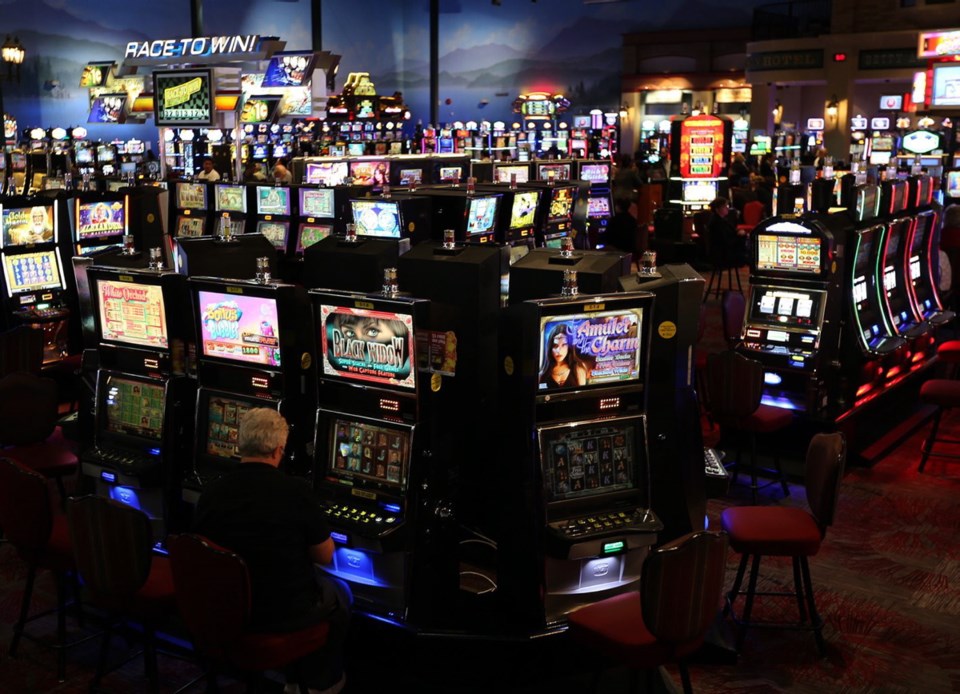The B.C. Lottery Corporation has just announced that Saanich and Victoria are the remaining competitors for a new casino in this region. Given the harms associated with gambling, you have to wonder why.
Gambling is not benign, nor it is it simply “fun” or “entertainment,” as the corporation insists. In his 2013 report Lowering the Stakes, the provincial health officer cites a comprehensive 2011 review of the evidence that found the most consistent social impacts are “increased problem gambling and associated harms (e.g., bankruptcy, divorce, suicide), increased crime and increased socio-economic inequality.”
In fact, public-health professionals have been concerned with the health effects of legalized gambling for a long time. The Canadian Public Health Association’s 2000 Position Statement on Gambling Expansion in Canada expands the list of negative consequences to include family dysfunction and domestic violence, including spousal and child abuse, alcohol and other drug problems, and several psychiatric conditions.
Then there is the crime aspect. Just a few days before the announcement about Saanich and Victoria being short-listed, the B.C. government announced it is establishing a new police group to take organized-crime activity out of B.C. casinos — which is an admission that criminals are there.
Yet despite the evidence of the harm from gambling, the health officer notes that B.C. has greatly expanded the scope and scale of gambling. As a result, by 2007 almost one in 25 B.C. residents over age 18, about 159,000 people, were moderate-risk gamblers and one in 100 were problem gamblers. Moreover, the proportion of problem gamblers had more than doubled from 2002, which the health officer noted was “likely related to the introduction of new and expanded gambling opportunities in B.C.”
Clearly, the B.C. government has been creating a problem, not solving one, expanding revenue from products that it knows cause harm. Moreover, as the principal stakeholder in legalized gambling, it and other governments in Canada are in a clear conflict of interest when it comes to regulating this activity.
In my view, it is reprehensible for governments to be in the business of developing and marketing harmful products. To then turn around and say they will use some of the revenue from this harmful activity to set up programs to address the harms they have created is simply adding insult to injury.
What makes it doubly offensive is that gambling increases social and health inequality. The health officer reports that “rates of problem gambling are higher among those from ‘lower-income and ethnic minority groups and communities, as well as recent migrants and young males.’ ”
He also points out that “lower-income households spend a higher proportion of their income on gambling than do higher-income households” and that lower-income families spend about three times as much on gambling, proportionately, as do high-income families.
Public-health organizations such as the Canadian Public Health Association and B.C.’s health officer have tended to take a “harm-reduction” approach, preferring to manage gambling rather than eliminate it as a public “service.” I don’t think that goes far enough, because what we have here is a system that takes more from the poor than the rich, while inflicting more harm on them.
Moreover, while gambling’s health and social impact is less than that of tobacco and alcohol — two other activities that have negative impacts and for which harm-reduction is a common approach — it differs in one important respect: Government is the owner, producer and marketer of this product. It sets up lottery corporations that develop and market the product and that are accountable to government. Then it uses the profits to fund community services and activities instead of raising taxes.
Gambling as a source of revenue is a regressive and harmful form of taxation. And all this for less than three per cent of total provincial revenue. So the smart thing to do would be to get rid of publicly provided gambling and increase income taxes and corporate taxes, which are progressive.
Before pursuing this “opportunity” any further, Saanich and Victoria need to stop and think more about what they are doing. They should take a lead in rejecting gambling as a legitimate government activity and protect their residents — and other residents of the region — from further harm by rejecting the casino.
Dr. Trevor Hancock is a professor and senior scholar at the University of Victoria’s school of public health and social policy.



